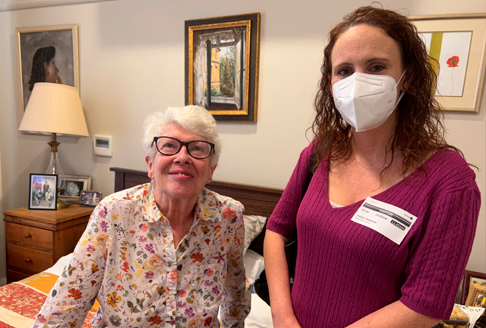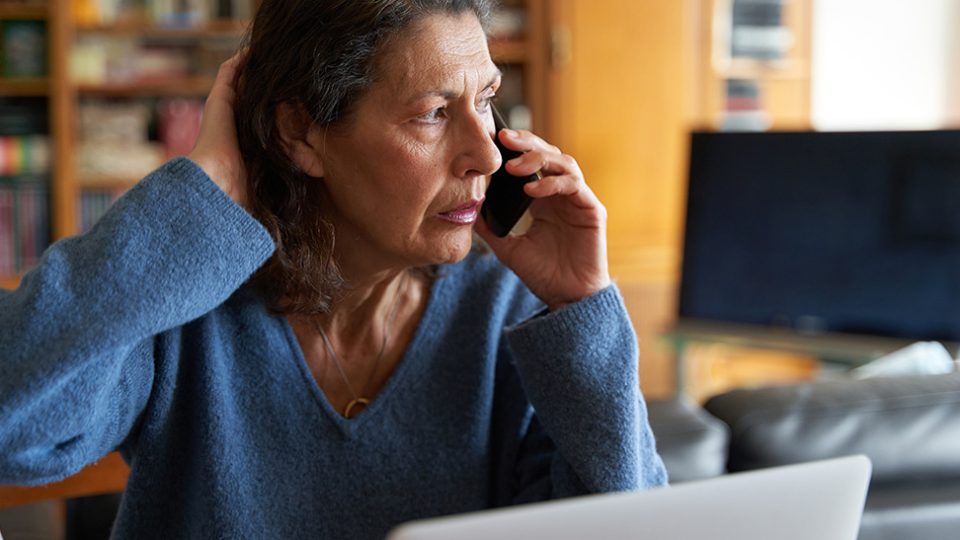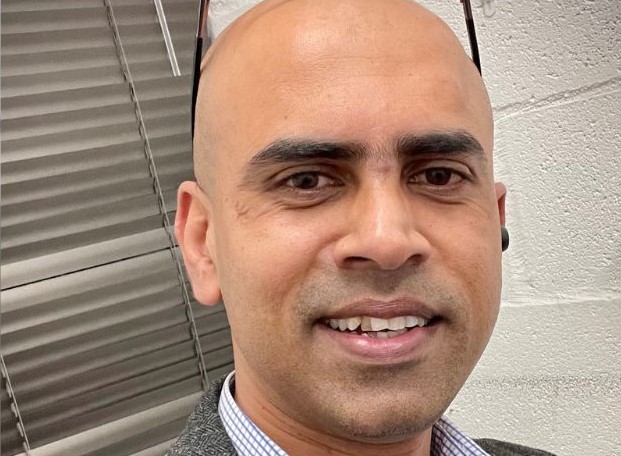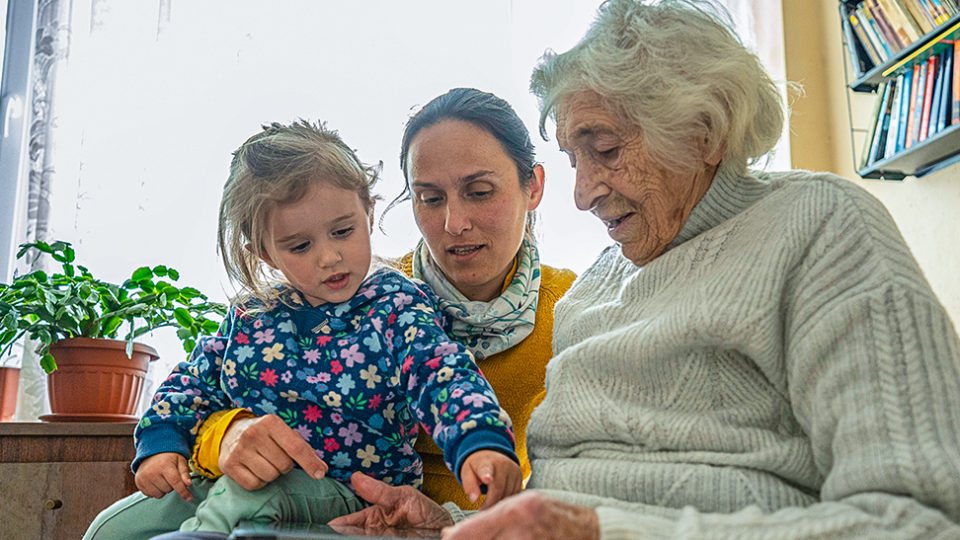Meet Swinburne Digital Story Program volunteer, Natalie Alexander
- 26 Jun 2023

Benjamin Franklin once said, ‘If you want something done, give it to a busy person’. This saying applies to the Swinburne Digital Story Program Aged Care volunteer, Natalie Alexander.
In addition to a busy family life (three children aged from 9-14), Natalie is currently completing her fourth year of a Monash University psychology pathway. Natalie is hoping to be practising psychology in the child/adolescent space after her Master’s program.
Natalie is also an active volunteer with various organisations, including the Swinburne Digital Story Program Aged Care project at Baptcare’s Hedley Sutton community.
How long have you been volunteering with the Swinburne Digital Story Program Aged Care project?
I started in January this year.
Have you done any other volunteering?
I’ve always done volunteering. Currently, I’m an active volunteer in schools, Raise Youth Mentoring program, Very Special Kids and of course the Swinburne Digital Story program. I like to volunteer in a variety of spaces to learn more about those worlds. I believe that this breadth of experience will help me in my career.
How did you get involved in the Swinburne Digital Story project?
I follow Swinburne on social media, saw an ad for the Digital Story program and got in touch with Rebecca Collins, the program Director.
What drew you to the project?
I thought it sounded wonderful to spend time with someone who is perhaps a bit lonely, and just provide them some company. The physical memento of the four-minute digital story after the program will hopefully not only be enjoyed by the resident, but also be useful do the aged care employees. I hope the digital story program will help the staff understand the resident being profiled a bit better, help the everyday conversation and ultimately, the quality of the resident’s life.
It’s also lovely to be able to leave a gift for the resident that hopefully enhances their wellbeing.
Whose digital story are you covering?
Barbara, a resident from Hedley Sutton.
What do you enjoy about volunteering with the Swinburne Digital Story Program in Aged Care?
It’s a rewarding process to invest time in something worthwhile that will hopefully deliver some positive outcomes and joy.
Residents have fascinating stories. They don’t think they’ve got much to tell until someone gives them the time and space to talk.
It has also provided me with some invaluable training, and I now have skills that I can use in the future.
Why do you do volunteering?
I like giving back to my community. And I believe the world is a little bit nicer if we go out of our way for someone else. I really enjoy volunteering and It’s fulfilling to think you can bring some joy into someone’s life.
Hopefully I can brighten Barbara’s day and give her someone to talk with. I also feel quite privileged to get to hear someone else’s life story.
Selfishly, I also think it’s helpful for me to be amongst other age groups. It helps me understand more about people and this will help me in my daily life as well as my study. And lastly, I find that volunteering can help put your own little problems in perspective.
How would you describe the process of creating a digital story?
Firstly, you learn a lot with the program, such as good conversation starters, about feeling comfortable sitting in silence, and mostly how to be around older adults. We then use these skills to reminisce with the resident and find out more about them, with the aim of turning what we have learnt into a short digital story. Rebecca from Swinburne is very supportive and always is ready to help if needed.
It has been lovely to see Hedley staff treat the residents with such friendliness and respect. I was walking recently with Barbara to the Hedley café and it was like walking with a celebrity – all the staff calling out ‘Hello’ to Barbara. I have been impressed by the Hedley staff, they are so friendly.
If someone was thinking about trying out volunteering, what would you say?
I’d encourage people to do volunteering if they can. It’s a great experience, you gain as much as you give.
If you’re interested in joining our vibrant volunteering community, please email us on volunteer@baptcare.org.au
Community news
-

Tips for dealing with life in the sandwich generation
This is part two in our blog series on the sandwich generation. Here are some tips for dealing with the carer’s squeeze experienced by a growing number of Australians, particularly women. Key points: Summary of challenges facing the sandwich generation Tips for dealing with the challenges System reforms needed
- 11 Jul 2025
-

Meet Suraj | Hospitality Manager Residential Aged Care
What makes a residential aged care community truly feel like home? It’s the perfect blend of a warm, inviting atmosphere, devoted and compassionate staff, and thoughtfully crafted meals that foster an undeniable sense of belonging. Today we meet Suraj Ligade, Baptcare’s Hospitality Manager, to explore how his passion for care and culinary excellence nourishes both the bodies and spirits of our treasured aged care residents.
- 10 Jul 2025
-

The sandwich generation phenomenon unpacked
Welcome to the first of two blogs on the theme of the sandwich generation in Australia. In this one, we’ll cover the definition of the sandwich generation, the different types of caring that fall within it and some of the issues those in the sandwich generation face. The second blog will cover tips for dealing with life in the sandwich generation
- 02 Jul 2025
